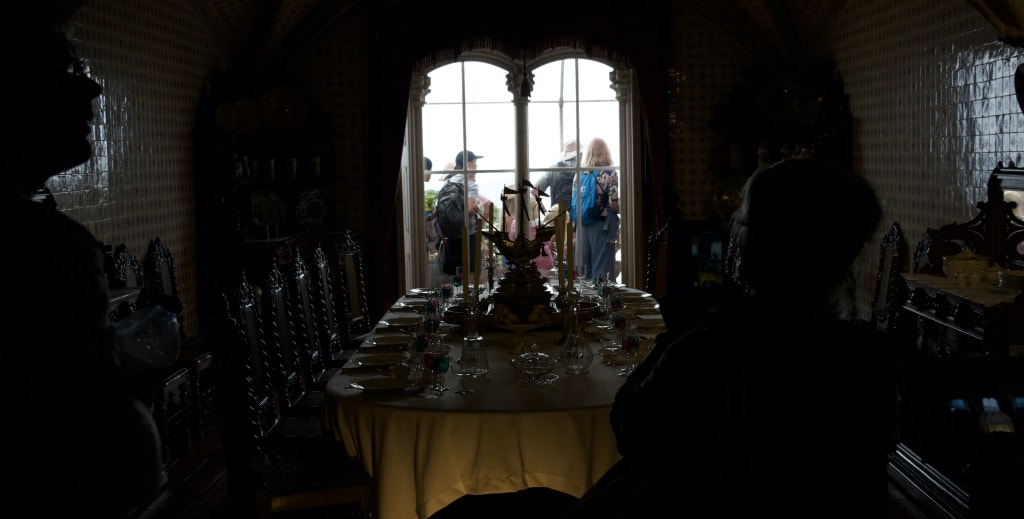The Folly of Certainty
Let go. Break free.

We may label people, places, and events as good or bad based on how they make us feel about ourselves. This cognitive bias, known as the Affect Heuristic, is a mental shortcut triggered by our nervous systems to project known patterns onto unknown phenomena so we can make snap decisions about complicated things. Emotions are such powerful motivators that they can con us into equating life with our stories of it.
The Affect Heuristic triggers Confirmation Bias: the tendency to find, remember, and interpret information that validates our emotions while undermining contradictory information. So not only do we tend to create judgments and act on them based on momentary emotional impulses, our rational minds take that data and think themselves into agreeing with our reactions. This creates a feedback loop of thought and emotion that guides our decisions. We base our identities upon those decisions because they feel like something we're doing, not something merely happening in the field of awareness.
"I am this and not that because I like these and not those. While people who are "that" and like "those" are allowed their predilections, they are not like me, and so I should keep following my preferences."
Over time, we become our labels and defend them as if life depends on their survival. We do so without good reason even though we can't (or shouldn't) adamantly carry beliefs without investigating their antithesis. But these labelling mechanisms, as valuable as they can be for survival, narrow our field of view to the point that we lose sight of our shared humanity and the vast unknown of consciousness we're born into.
Our labels for reality do more than anchor our identity in the sea of personalities. They create parameters for happiness. "Happiness is this, not that." So our labels draw an arbitrary path for us based on randomly clustered and loosely related but viscerally personal reactions to the world. We don't know what we don't know, within ourselves or in the context of life around us, so we're all but blind to the shape of our paths ahead of time. The course reveals itself only in the process.
Only after traversing the bends in the road will we know the nooks and crannies. Nothing can change that - gurus can only point in the right direction. Even if they could draw a detailed map of every step, we won't recognize their landmarks until we feel the topography under our feet, and that only happens en route - not before.
Wisdom (alignment of prosperous intention and appropriate action) must be experienced before it's wholly understood and ready for intentional replication. The mechanisms of suffering keep us on familiar paths; we let them because they've kept us safe and justified our experience. They're comfortably - dangerously -intimate because they reaffirm our existing state of mind, but unless we already have the peace we seek, repeating internalized patterns and continually reaffirming our current sense of self only causes more suffering.
If your life doesn't feel like the one you want to live and you're done letting time slip by without getting closer to how you want to be, you must change how you process inputs from the world. And it must be a change in the process. Simply swapping inputs won't do much because a predetermined mind will make the same out of nearly everything.
"Wherever you go, you take yourself with you.”
- Thomas à Kempis, translated from Latin.
Instead of following the same path to that familiar and disturbingly comfortable destination, practice letting go of your reality by turning the instinct to label into an instinct to question. Instead of affirming your "truth," look for exceptions and alternative possibilities. By phrasing reality as a question instead of a fact, we interrupt our ingrained labelling processes and allow new realities to unfold. While this doesn't replace the value of an objective, outside perspective, it reinforces the habit of framing sensory inputs and cognitive outputs as possibilities instead of facts. So release your intent focus and relax into the vastness of the world outside your head. In doing so, you'll create space between the story you tell yourself and reality as it is.
There's always a catch. We can never be completely objective with our internal narrative because we're inextricably linked to the construct of self, and we don't want to take the practice of letting go so far as to lose our humanity and reduce ourselves to piles of sensory rubble. Preference and opinion are what separate human beings from nodes in a hive. Save full-blown ego death for an ayahuasca retreat, months sweeping the monastery floor, or another essay.
---
Like what you just read or know someone who would? Share this essay!
I'm currently writing a book that explores these ideas in greater detail. I'd love for you to join the journey to inner peace and receive content like this before it's published anywhere else.
I share bite-sized wisdom and banter on Twitter.
About the Creator
Paul Bokserman
Life's long enough to cultivate inner peace and too short not to.
@peacesofpaul on Twitter
Paul Bokserman on LinkedIn
Content & Copywriter to The Arcane Bear






Comments
There are no comments for this story
Be the first to respond and start the conversation.